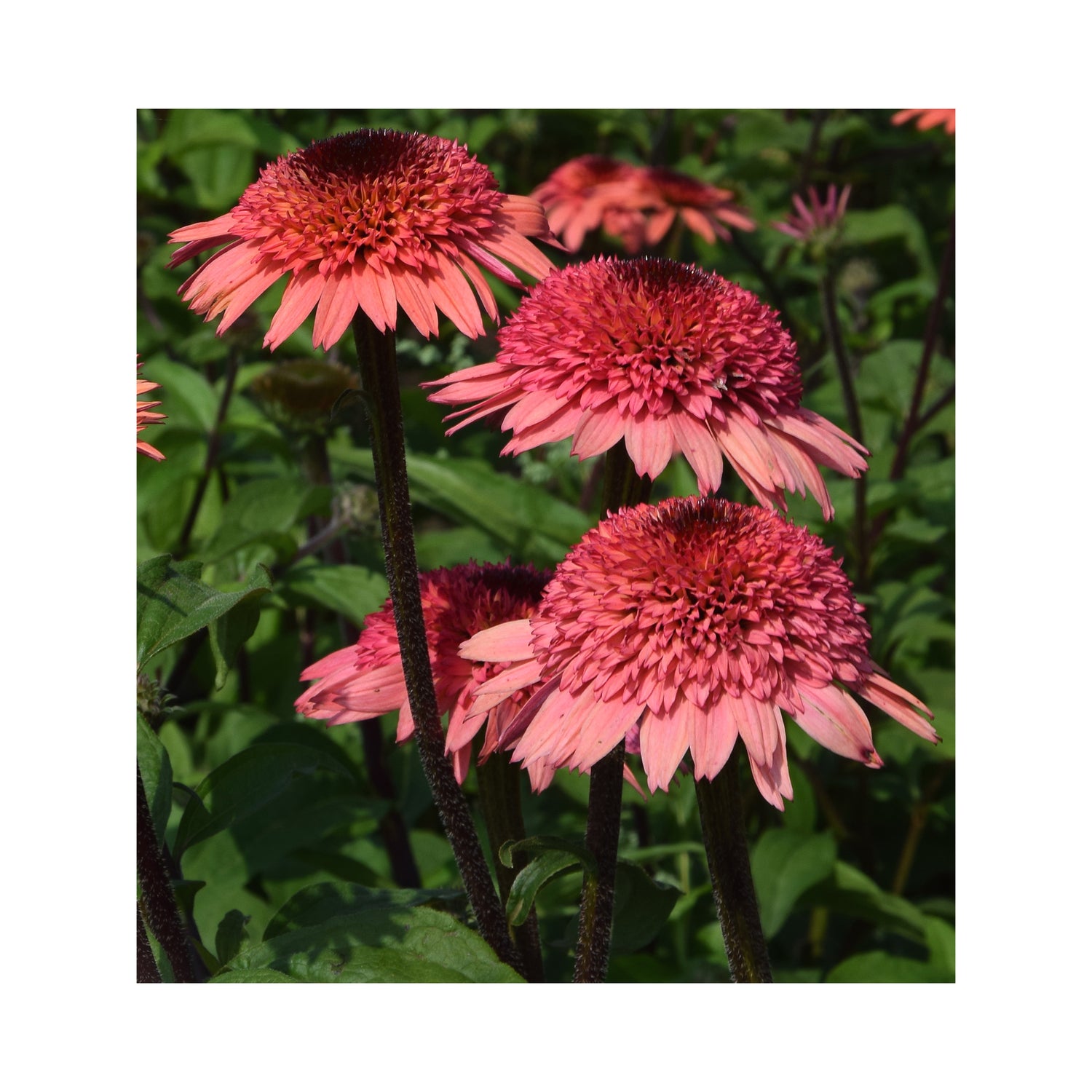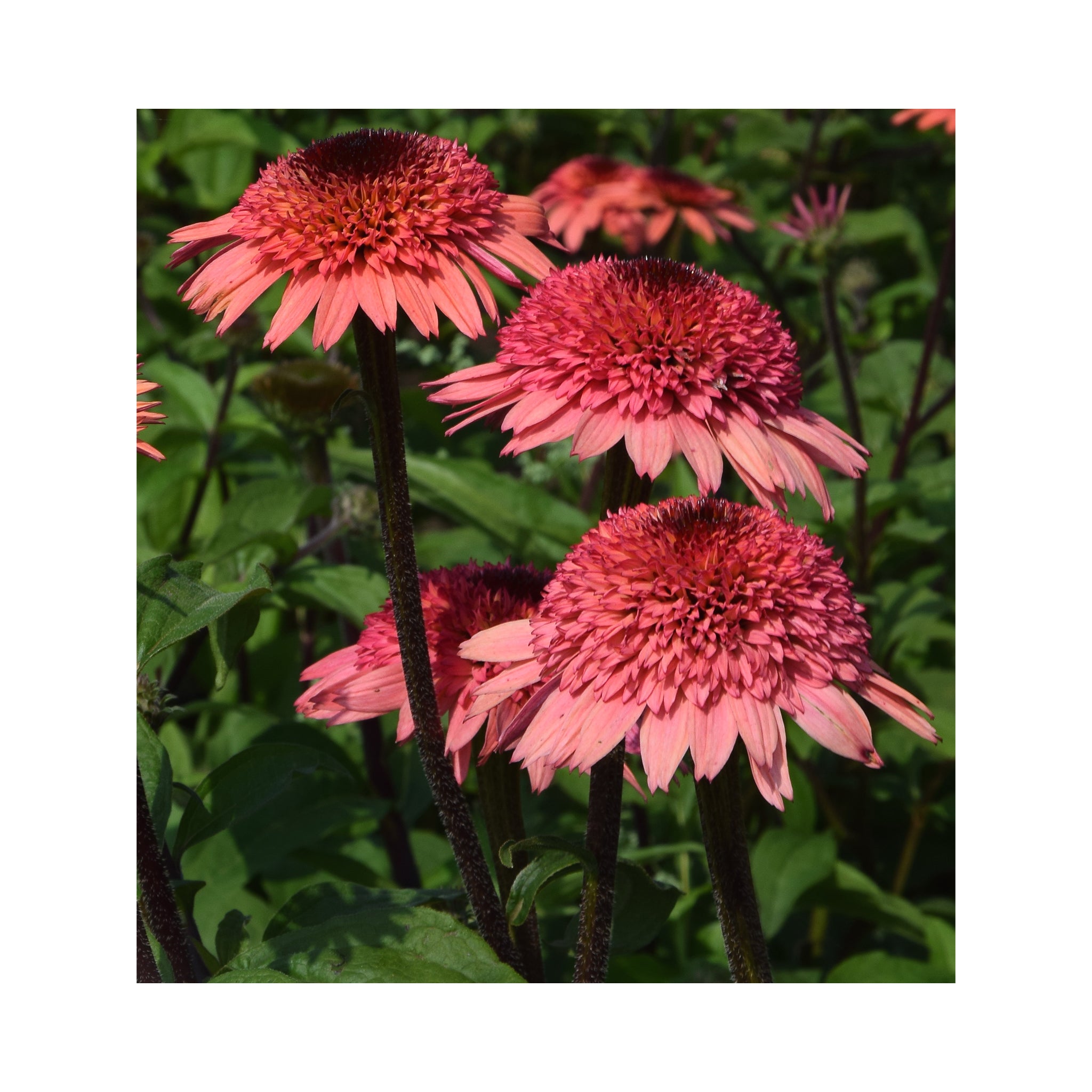
About the Echinacea Raspberry Truffle
Care Instructions
Position, sunlight and more
Height and Spread
Feeding, Pruning & more
Our pot & plant size explained
At Newlands Nursery we grow and sell plants in a variety of different sizes, from small starter plants up to planted containers.
We know it can be tricky to picture the size of each plant. This page gives you an idea of the size of the plants we are sending out.
Please keep in mind that plants vary from one season to the next. The size of the plant refers to the pot or plug it is grown in, rather than the height of the plant, unless specifically mentioned on the plant page.
 |
Starter Plant (Plug Plant)Plug Size: 2cm by 4cm. Our most popular size. This is often the most economical way of buying plants and is a great way to get a head start on the season. Generally this size is best to be potted up before planting out. |
 |
Jumbo PlugPlug Size: 6cm by 7cm. A fantastic alternative to a 9cm pot and saves on plastic too. The plants in this size are well established and give you a head start. This size is perfect for planting straight into containers and baskets as well as the garden. |
 |
9cm potPot size: 9cm by 9-10cm. This size hold some well established plants, some of which maybe around 1 year old. We sell most of our ranges in this size and most of the plants sold in this size, are established enough to be planted straight outside. |
 |
13cm or 1 litre potPot size: 12-13cm by 12-15cm Currently our largest size of plant, with the exception of our planted containers. Many of our House Plants are available in this size, as well as some special collections and varieties. |
|
|
-
Flowering time and interest
-
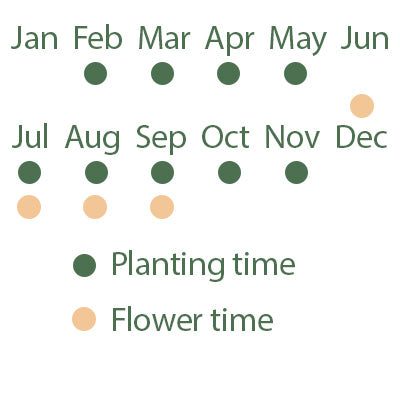
You may also like
-
Ultimate Salvia Starter Plant Collection - 12 different varieties
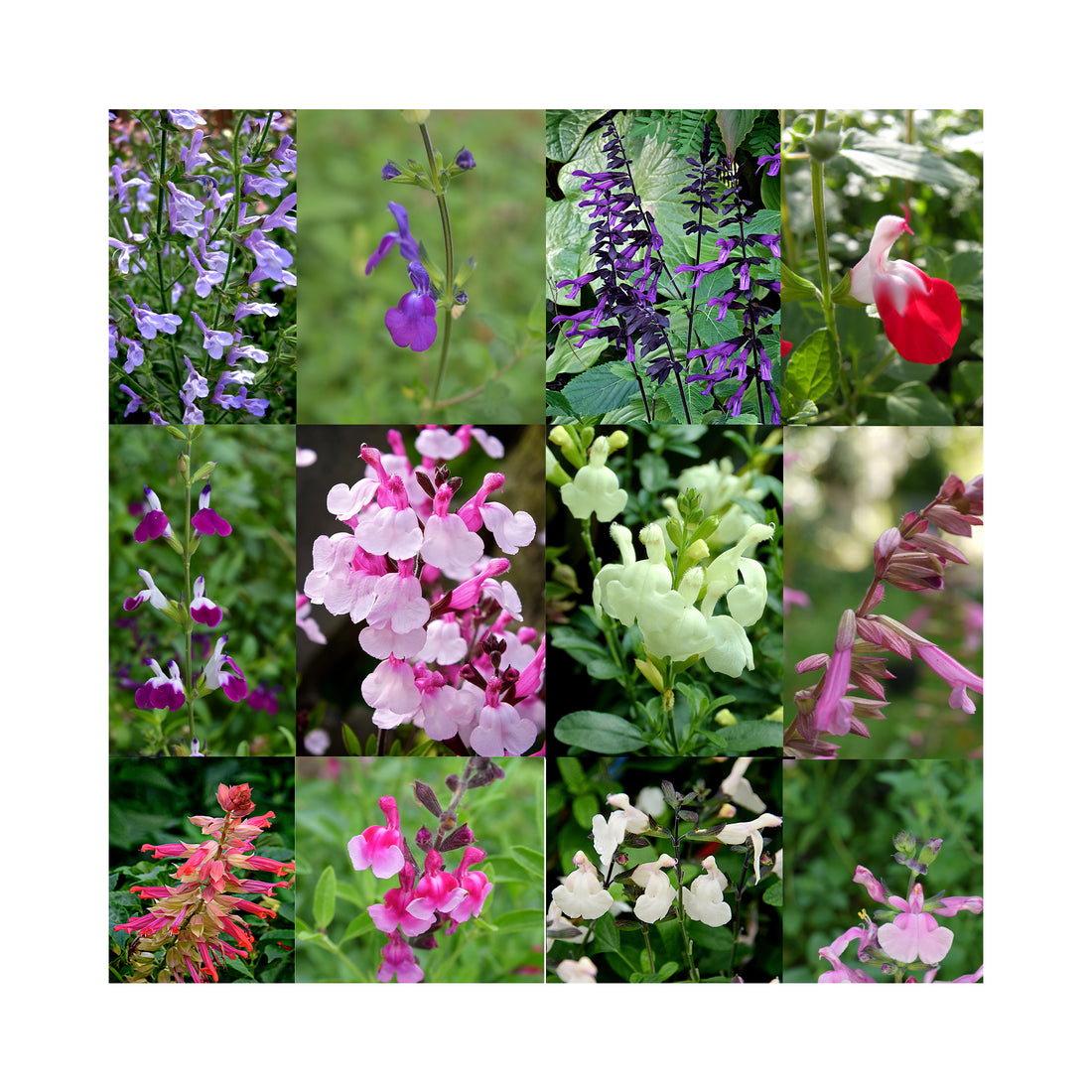 Ultimate Salvia Starter Plant Collection - 12 different varieties
Ultimate Salvia Starter Plant Collection - 12 different varieties- Regular price
-
£29.99 - Regular price
-
£43.96 - Sale price
-
£29.99
Quick view
-
Scented Geranium, 6 mixed starter plants - Stunning Flowers with Scented Foliage
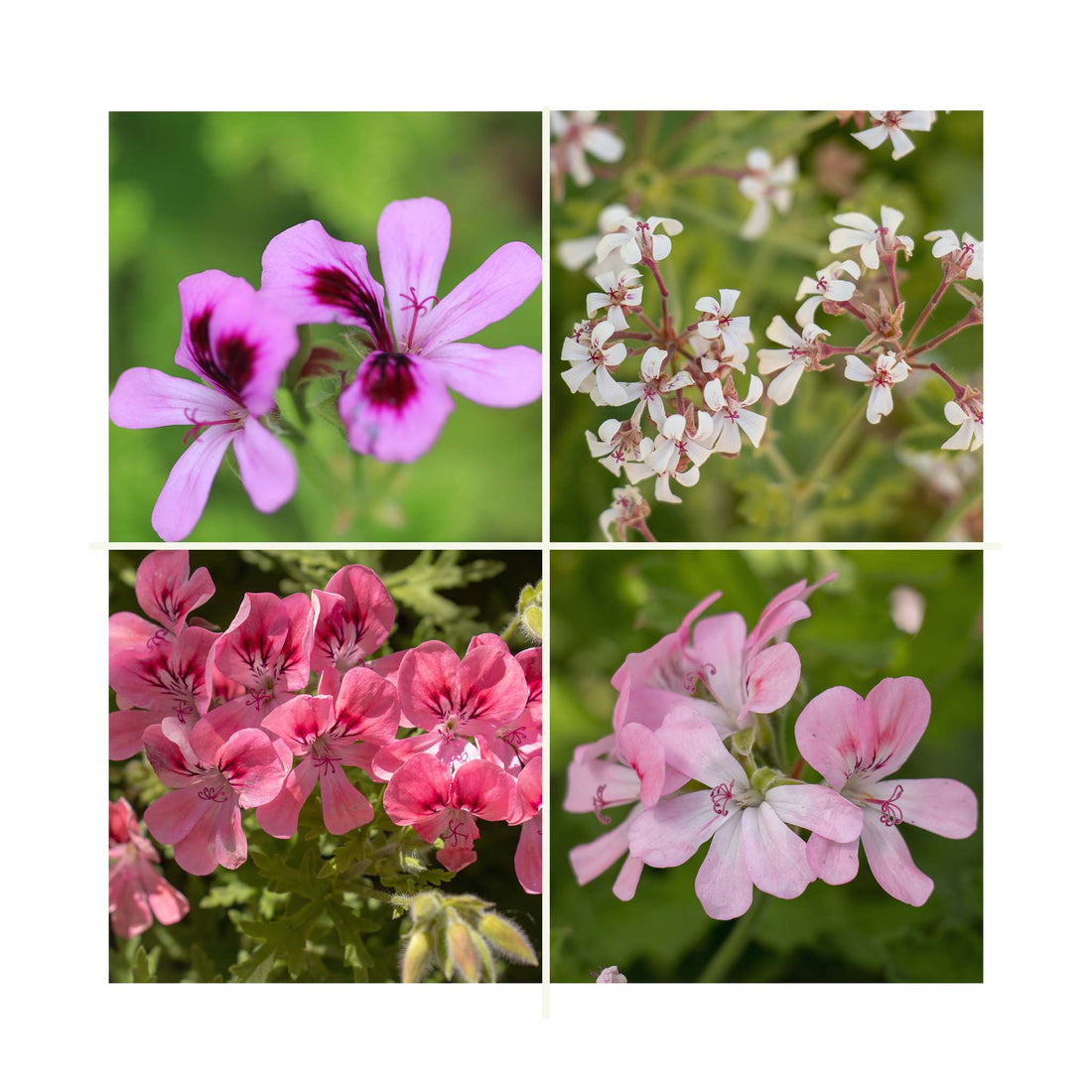 Scented Geranium, 6 mixed starter plants - Stunning Flowers with Scented Foliage
Scented Geranium, 6 mixed starter plants - Stunning Flowers with Scented Foliage- Regular price
-
£16.99 - Regular price
-
- Sale price
-
£16.99
Quick view
-
Scented Geranium Collection, 6 Plants in 9cm pots - Stunning Flowers with Scented Foliage
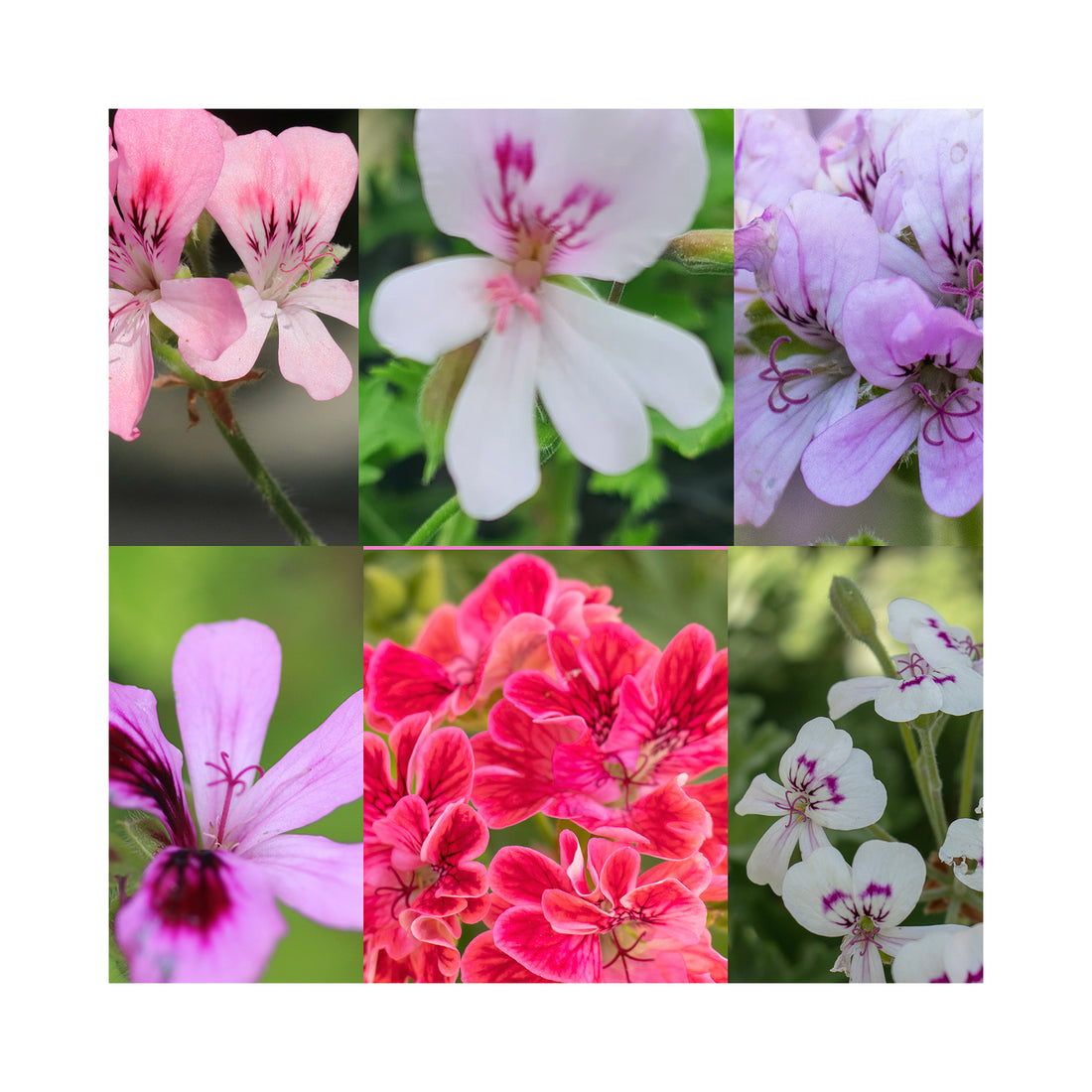 Scented Geranium Collection, 6 Plants in 9cm pots - Stunning Flowers with Scented Foliage
Scented Geranium Collection, 6 Plants in 9cm pots - Stunning Flowers with Scented Foliage- Regular price
-
£26.99 - Regular price
-
- Sale price
-
£26.99
Quick view
-
Salvia 9cm plant Collection, 6 different varieties
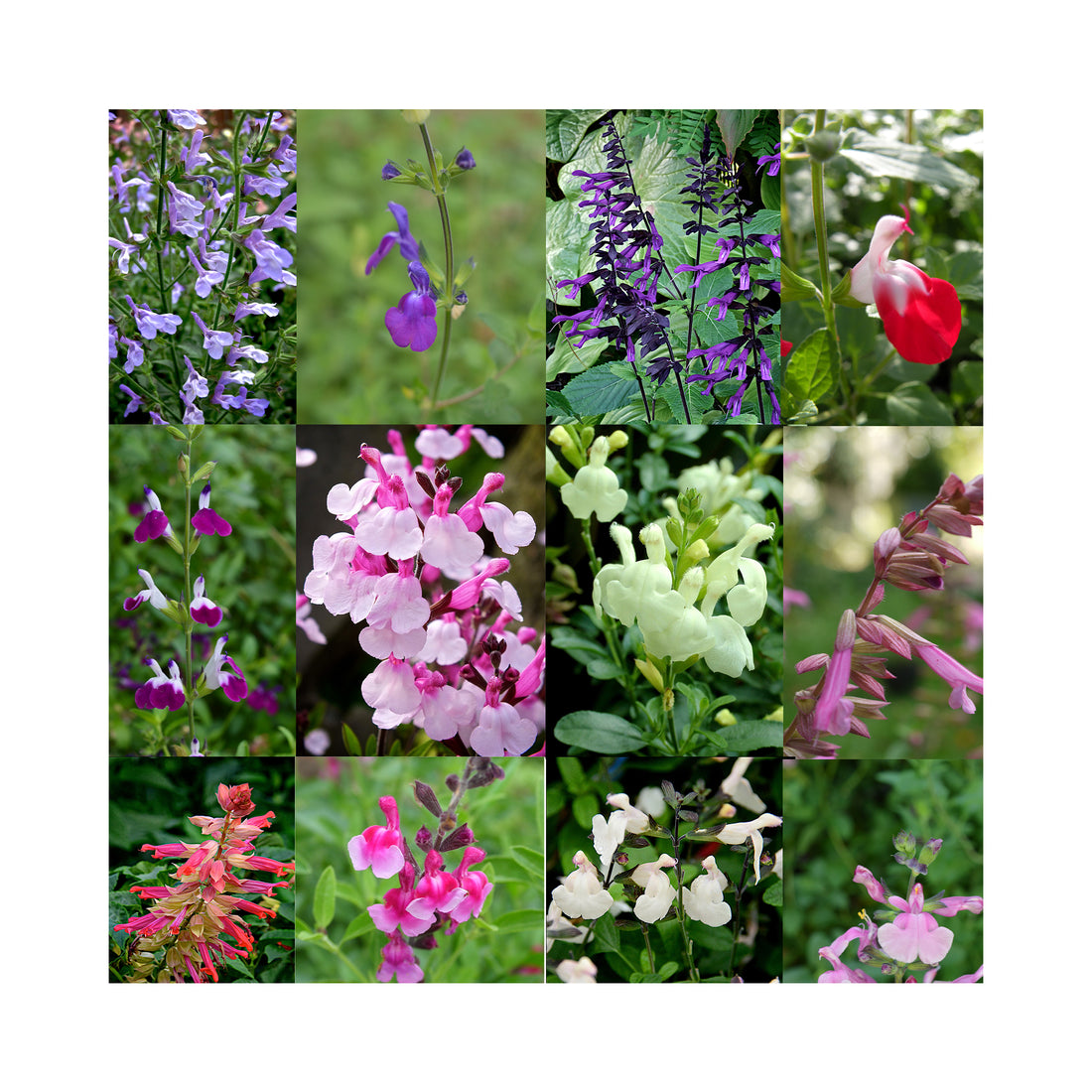 Salvia 9cm plant Collection, 6 different varieties
Salvia 9cm plant Collection, 6 different varieties- Regular price
-
£28.99 - Regular price
-
£41.94 - Sale price
-
£28.99
Quick view

